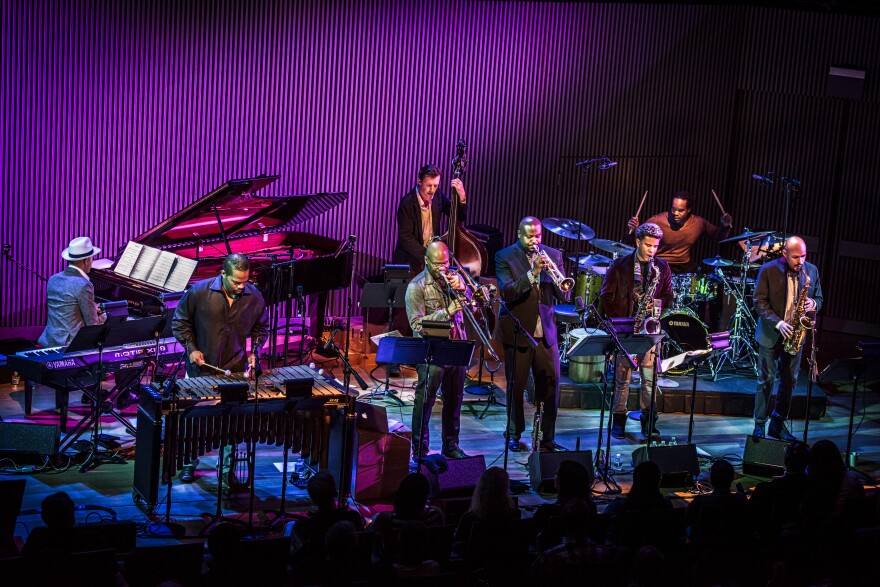When jazz trumpeter Sean Jones took on the job of interpreting tunes by Miles Davis, he didn’t try to recreate the famed musician’s notes.
Instead, Jones set about pushing the music forward.
He’s part of the SFJAZZ Collective, a San Francisco-based group of musicians that is booked through Saturday at Jazz at the Bistro in St. Louis. The group, which each year honors a big name in jazz, is now focusing on Davis, a trumpeter who helped give birth to the cool but stylistically never stayed in one place.
In the collective’s latest group of musicians, Jones is joined by saxophonists Miguel Zenon and David Sanchez, vibraphonist Warren Wolf, trombonist Robin Eubanks, bassist Matt Penman and drummer Obed Calvaire.
The musicians are on tour to promote their latest recording, “Miles Davis & Original Compositions Live: SFJAZZ Center 2016.”
While concert-goers will recognize the iconic trumpeter’s tunes, Jones said their mission was to go in new directions.
“In the spirit of what Miles was about, we wanted to make sure we put a modern twist on it and sort of superimpose various rhythmic, harmonic and melodic ideas that are sort of popular now,” Jones said. “Like a lot of jazz musicians now play in odd meters. A lot of folks play various complex chord structures. So we wanted to put some of that on that material while maintaining the essence of what it was initially.”
Past honorees of the collective include John Coltrane, Ornette Coleman, Thelonious Monk, Horace Silver and McCoy Tyner and Wayne Shorter.
Given how Davis shifted from bebop to modal music, electronic jazz and experimental pop tunes, interpreting his work allowed SFJAZZ Collective to cover a lot of musical territory.
It also gave them freedom to breathe new life into old material, at times by building on the trumpeter’s influences, as Zenon did on “Nardis,” a tune Davis composed in the late 1950s but never recorded.
“Miles was influenced by modal music and sort of like Eastern European music or far eastern music,” Jones said. “Miguel decided that he was going to dive a little further into that influence and create a piece or an arrangement based on that concept. It’s kind of cool to investigate that music and look at it in terms of its historical context but also what Miles was intending to do at that time and just kind of take it a little further.”
?t=4s
Jones, 38, first heard Davis’ music in the sixth grade, just as he was picking up the trumpet, falling in love with the mid-1980s tune “Tutu.”
But he has no intention of filling Davis’ shoes.
“If I think about it, it’s daunting. But I don’t think about it,” he said. “I just think about the job. And I try to think about what needs to be expressed in the music. I know that Miles wouldn’t want any copycats.”
The big question for the SFJazz Collective — or any group that aims to interpret a jazz master — is why audiences would want to hear new versions of jazz masters when they can easily find the originals.
For Jones, it’s about capturing the composer’s original intent while rearranging the music “in the now.”
“If you play, you know, a Stravinsky piece it’s going to be what it is. Because nobody would dare rearrange an Igor Stravinsky piece, or a Bach piece. It’s just repeated over and over again. It’s the same way,” Jones said. “But in jazz, you can reinterpret the stuff and it can sort of evolve into perpetuity, man. And that’s why it’s exciting.”
David Cazares is St. Louis Public Radio's editor for arts and culture, health and science.
Follow David on Twitter: @dpcazares




